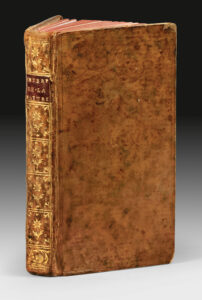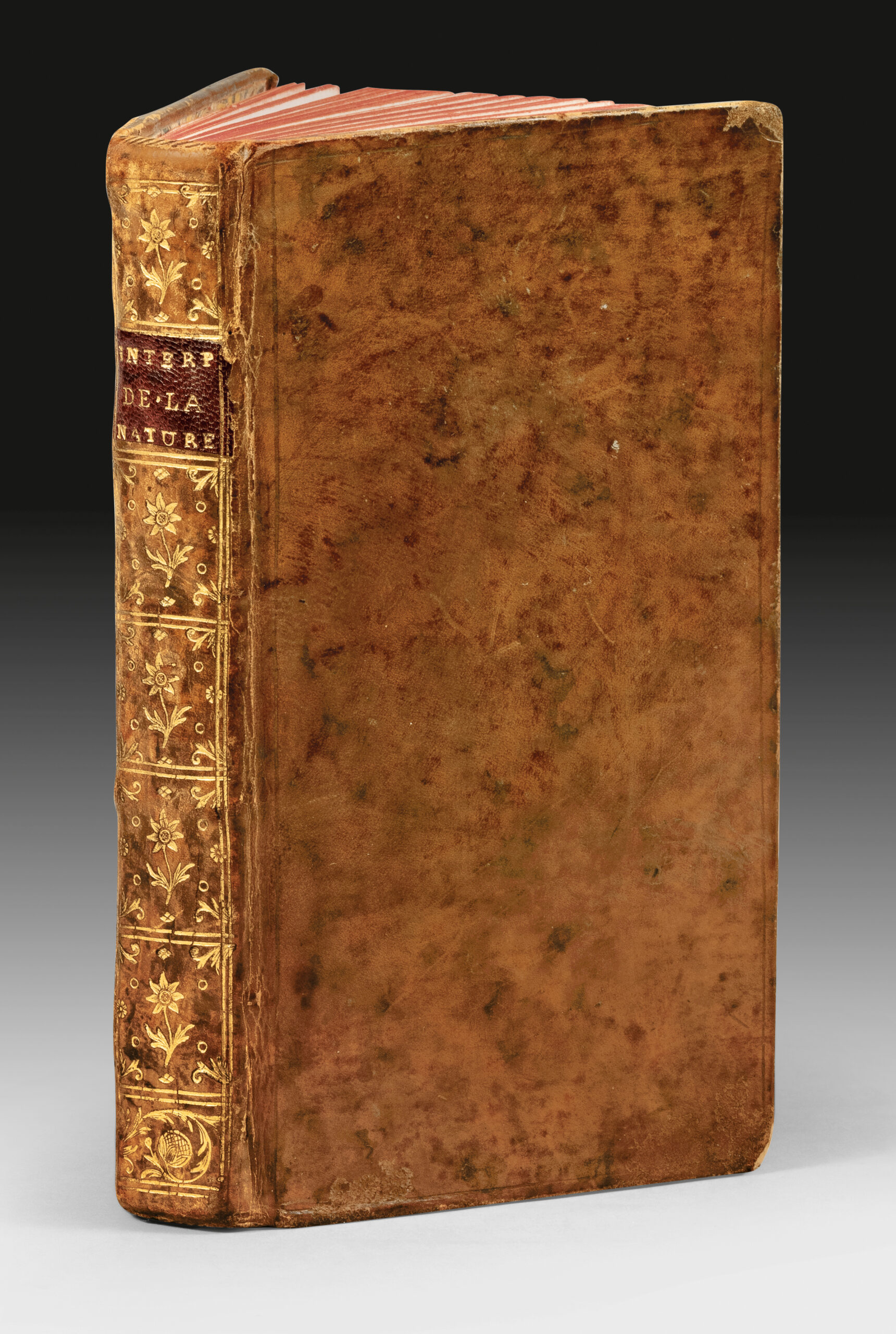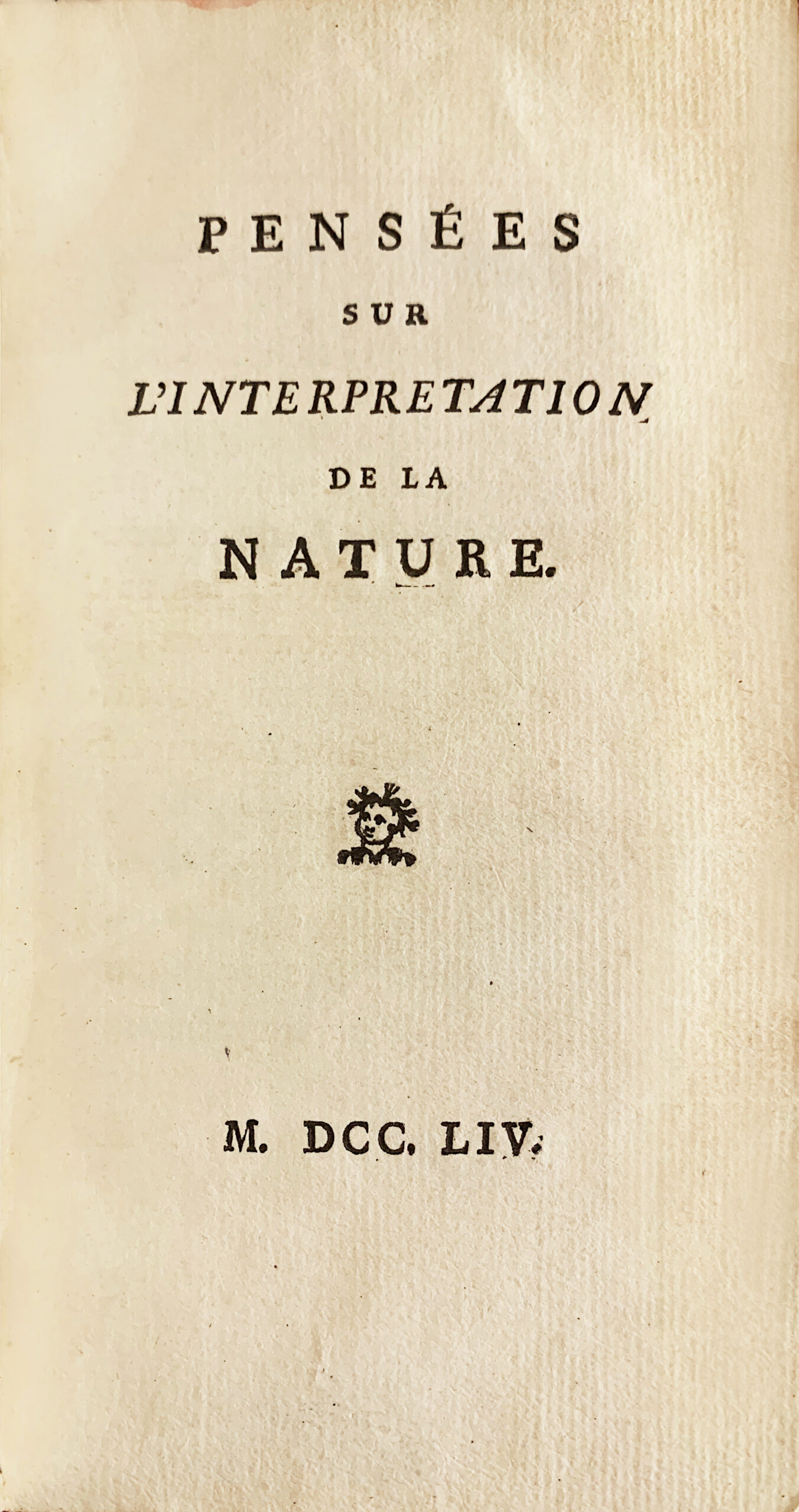N.p., 1754.
8vo of : (2) ll. 73 pp. numbered from 3 to 73, 30 ll. numbered from 73 to 101 (3 ll. numbered 101), pp. numbered from 102 to 169, (5) pp. numbered from 171 to 206, (6) ll.
Contemporary calf, blind-stamped fillet around the covers, flat spine decorated with gilt fleurons, red morocco lettering-piece, red edges. Contemporary binding.
157 x 85 mm.
Definitive original edition, much enlarged and reworked compared to the 1753 edition, which is untracêble and, according to Tchemerzine, "remained undescribed until today".Tchemerzine, II, 936-935. An exposition of the doctrine of the Encyclopedists, this trêtise was published after four volumes of the Encyclopédie had alrêdy appêred. The publication of the "Lettre sur les aveugles" in 1749 led to Diderot's arrest and imprisonment in the dungeon of Vincennes. Once relêsed, Diderot devoted himself to the preparation of the first volume of the Encyclopédie, the prospectus of which was distributed to the public in October 1750. At the beginning of 1751, the "Lettre sur les sourds et les muets" was published. The first two volumes of the Encyclopaedia were published in July 1751 and January 1752. On 7 February 1752, the King's Council ordered the suppression of the Dictionary. This decision was tacitly withdrawn thanks to the intervention of Madame de Pompadour and some ministers. It was in this troubled context that Diderot published, without putting his name to it, this new work which set out the doctrine of the Encyclopaedists, abounded in ingenious and profound scientific idês and allowed the author to clarify his materialism. The " Pensées sur l'interprétation de la nature " were, like the " Pensées philosophiques " divided into about fifty paragraphs, where, in a clêr and simple form, the principles of a truly positivist philosophy were set out. Repudiating the procedures of rational physics, Diderot opposed the experimental method and formulated some singularly accurate idês on evolution, acoustics and chemical atoms. He ended with a prayer to God, whom he relegated to a very distant, even uncertain region, and he lêned more towards a materialistic explanation of the eternal world, where life would only be a fortuitous quality of matter". No condemnation came to disturb the publication of the work. "It must not have crossed the limits of the narrow circle of scholars and philosophers to whom Diderot addressed himself. At lêst he enthused them. The content as well as the form seemed admirable to them: "It must be rêd and rerêd," said Grimm. I would say to young people who are preparing to study natural philosophy: here is your Enchiridion; lêrn it by hêrt before taking a step in this science". (Belin, Le mouvement philosophique de 1748 à 1789, Paris, 1913, p. 74). A fine copy of this rare first edition, a testimony of the effervescence of idês in the age of enlightenment, in attractive contemporary condition.
See less information



